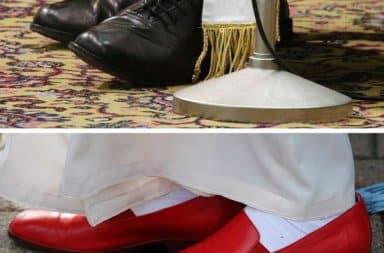I read the New York Times today so you wouldn't have to. Their words are in bold. My uneducated opinions are not.
Fed Announces Plan to Buy Short-Term Debt
By EDMUND L. ANDREWS and MICHAEL M. GRYNBAUM
Published: October 7, 2008
WASHINGTON — The Federal Reserve announced a radical new plan on Tuesday to jump-start the engine of the financial system.
Really? Radical and new? I'm all a twitter now… breathless with anticipation over here.
The Fed said in a statement that it would begin to buy large amounts of short-term debt in an effort to stimulate the credit markets, which have all but dried up.
Wait… so they're going to use taxpayer money to buy debt in an effort to stimulate the economy? I thought you said radical and new. This isn't radical or new. This is futile and old. This is like a joke about airplane food and I don't think that even exists anymore.
Under the program, the Fed said that it would buy the unsecured short-term debt that companies rely on to finance their day-to-day activities. “This facility should encourage investors to once again engage in term lending in the commercial paper market,” the Fed said Tuesday in a statement. “An improved commercial paper market will enhance the ability of financial intermediaries to accommodate the credit needs of businesses and households.”
In English now, Fed Dude is saying that the banks and corporations don't have faith that they will be paid back for their short term loans so the government is gonna step in and back those short term loans with your tax dollars. That's nice of you.
While the move will put more taxpayer dollars at risk, it underscores the growing sense of urgency felt by policy makers in a climate where lending has virtually dried up. The Commercial Paper Funding Facility, “will complement the Federal Reserve's existing credit facilities to help provide liquidity to term funding markets,” the Fed statement said.
That sense of urgency policymakers feel actually stems from an urgent need to keep their jobs. Also, I think it's interesting that the Federal Reserve's existing credit facilities, which have printed more than a trillion dollars for bailouts in the last twelve months, needs to be complemented in the short term credit markets. Apparently, that nine hundred billion or so wasn't earmarked for helping companies pay for their day-to-day operations. On a related note, anyone want to earmark some funds for my day to day operations? Anyone?
Futures indexes in New York jumped sharply on the news, indicating a higher opening the day after the Dow Jones industrial average fell 800 points before recovering to close down 369 points.
Today's strong opening won't last unless banks want to loan again. And banks won't want to loan again unless they have either a) a government guarantee that our tax dollars will always bail them out or b) a free market with limited regulation that allows them to set their own business practices, standards and rates. Me, I vote for the latter, but I believe in a stupid thing called freedom. There are no guarantees in a free society, but in a socialist one, hell that's all they do is guarantee.
Because they can!
Also on Tuesday, European Union finance ministers gathered in Luxembourg to seek common ground to buttress the continent's banking system in the face of the financial crisis. Despite proposals from France and Italy, the European Union has eschewed any common fiscal approach to the crisis, mainly because Germany refuses to be drawn into a scheme for fear of being burdened with the costs of rescuing non-German banks.
That's what I like to see: a lack of solidarity within the European Union. They be all like, “Wait, you want me to pay to help out that other country? But they smell. Naw, fuck that. Ain't helping out no smelly. Germany keep it real, yo!”
The Fed's plan to buy commercial paper was formulated amid cascading losses in global stock markets, as the banking crisis spread across Europe and investors feared dire consequences for the world economy. The Dow Jones industrial average fell as much as 800 points before a late recovery, finishing down 369.88, below 10,000 points for the first time since 2004.
Wow. This one time, I had a sentence where I wrote about a banking crisis. And in the next sentence, I wrote about a bad day on Wall Street. I would have tied them together, but, you know, beer…
Even before bankers on Wall Street reached their desks on Monday, European stocks were plunging. The Russian stock market dropped 19.1 percent, the biggest decline since the fall of the Soviet Union. Major indexes in London and Frankfurt lost more than 7 percent; stocks in Paris fell by 9 percent. Stocks in Latin America and other emerging economies took their worst collective tumble in a decade.
And the times… they are tough… all… over…
Volatility reached the highest level in two decades, and oil prices fell below $90 for the first time since February.
Hey, these low oil prices. They ever gonna result in lower gas prices? ‘Cause the last time oil was this low, gas was like two bucks a gallon. Wait, what? Inflation is out of control so we're paying more for less goods because we keep printing money and giving it to banks? I have an idea then. Maybe we should stop doing that. Just a thought.
The contagion moved to Asian with the Nikkei index of Japanese stocks closing down 3 percent and the Hang Seng index of stocks in Hong Kong fell 4.9 percent. But shares rebounded Tuesday morning in Europe, with the FTSE up 1.2 percent in London, the CAC 40 was up 1.7 percent in Paris, and the DAX in Frankfurt was slightly higher.
Investors around the world are worried about what the evaporation of credit will do to an already-weakened global economy.
Umm… weaken it more, I'm guessing.
“There is a growing recognition that not only has the credit crunch refused to be contained, it continues to spread,” said Ed Yardeni, an investment strategist. “It's gone truly global.”
Hmmm. You're telling me that printing a bunch of money, calling it worth something, and then handing it to the global marketplace hasn't increased world economic faith in our ability to print more money. Come on, World. We've got the finest printing presses this side of the Mississippi.
In the United States, consumers appear to be significantly curbing spending; last month, employers cut more jobs than any month in five years. The $6 decline in oil prices, which settled at $87.81 a barrel, stemmed in part from fears that demand will slacken in the face of a deteriorating economy.
I like the word, slacken. You just don't read that enough. But yeah, when you make our money worth less, we spend less of it on the stuff that China makes for us. And apparently, we drive less too. And by the way, Real World Leaders, when you start making us eat less, you better make sure you got that pesky “right to bear arms” thing taken care of. Just saying.
The Fed plan is intended to renew the flow of credit on which the economy depends. Under its plan, the central bank would buy unsecured commercial paper, essentially short-term i.o.u.'s issued by banks, businesses and municipalities.
“You see, these are our IOUs. They're as good as money.”
The market for that kind of debt has all but shut down in the last week, with many major corporations unable to borrow for longer than a day at a time, as banks become more fearful of giving out cash. The volume of such debt totaled about $1.6 trillion as of Oct. 1, down 11 percent from three weeks earlier.
So, banks, which got into trouble for making bad investments at the behest of the government, are now refusing to lend to corporations that don't have enough capital because the banks cannot afford to take on the risk. But then, the government, which already offered to buy bad debt from said banks at a price above net asset value (what they're really worth) came in and said, “Don't worry. We'll back your loans. After all, our money is backed by those same shitty securities that bankrupted you.”
See the problem, here?
These credit fears persisted over the weekend despite the $700 billion bailout package that Congress approved last week.
Logic and fear: working together to be pessimistic of weak ass plans since 1040 BC.
The cost of borrowing from banks and corporations remained high on Monday, increased in part by a series of high-profile bank bailouts in Europe, where governments scrambled to save several major lenders from collapse.
Stupid banks and corporations. Raising rates while everyone around them defaults. It's like they want to make money or something.
The United States government appears to be pressing ahead with other radical efforts to shore up the financial system, even wading into corners of the markets where it has rarely interfered.
Maybe they're in a different area of the market, but they're doing the same thing: printing money and throwing it at the problem. If they really wanted to do something radical, they would give all the banks the finger, let them fail, and then watch as companies like Microsoft and Google, that have working capital, meet the demand of lenders by utilizing sound business and collection practices. This is how it used to be done back when we were free people in a free market. Back when the government worked for us, and not the banks.
Buying commercial paper could open the Fed to difficult conflicts of interest, because it would be juggling the goals of protecting its investment portfolio with its traditional goals of promoting stable prices and low unemployment.
Wait, the Federal Reserve is capable of having a conflict of interest? Now, all of the sudden, stealing from us two different ways is a conflict of interest. That's like the guy who robbed your house saying to you that he would never steal your identity because it's a conflict of interest. I know you think we're dumb, NYT guys. And that's easy to understand because we are. But really, y'all getting dangerously close to making this stuff really obvious.
“The Federal Reserve really would become the buyer of last resort, trying to jump-start the commercial paper market by taking on credit risk,” said Vincent Reinhart, a former top Fed official who worked under Alan Greenspan, a former Fed chairman, and Ben S. Bernanke, the chairman now.
Last resort? We're already at last resort stage? Cool, I guess this'll all be over soon.
The Federal Reserve has already stretched its resources to the limit by providing hundreds of billions of dollars in short-term loans to banks, Wall Street firms and money market funds.
Only because they had to. There were no more resorts left.
On Monday, the Fed announced that it would once again redouble one of its key emergency lending programs, increasing the size of its Term Auction Facility to $600 billion, from $300 billion. On top of that, the central bank plans to provide an additional $300 billion to banks to meet their end-of-the-year cash needs.
Uncle Sam will use its hard earned tax dollars to loan banks money on a great rate even if they've got bad credit, short credit, fat credit… No credit? No problem!
To pay for its burgeoning responsibilities, the Fed has no choice but to keep printing more money. To prevent that flood of new money from reducing the central bank's overnight interest rate to zero, the Fed also announced on Monday that it would start paying interest on the excess reserves that banks keep on deposit at the Fed.
Translated into English for your pleasure: To pay for it's anti-capitalist approach, the Fed must keep creating money out of nothing. To hide the reality of the resulting inflation and keep banks from pulling their money out of dollars, the Fed will pay interest on money that doesn't go flying out the door. Essentially then, the Fed is printing money to pay interest on money that it printed to give to the banks.
Paying interest on reserves allows the central bank to set a floor on interest rates and retain at least some control over monetary policy.
I disagree. I would say that paying interest on reserves allows the central bank to keep these organizations from moving their money to other banks that would pay a higher interest rate. Such a move would cause a serious drop in the value of the dollar and as such, with the dollar about worthless, no one would give a damn how much money the US printed and called worth something.
In its announcement on Monday, the Fed said it would pay an interest rate of 1.25 percent –three-quarters of a point below its target of 2 percent for the overnight Federal funds rate.
Whoopee.
But the possibility of propping up the vast market for commercial paper could represent an undertaking even broader than the Treasury Department's plan to buy as much as $700 billion in mortgage-backed securities.
Could? It could represent an undertaking broader than the bailout plan? I mean, seeing as how this particular move is “radical” and “new” that must mean it wasn't in the bailout plan, which means that it will… It will represent an undertaking broader than the bailout plan. Thanks for helping though, NYT dudes. Where would I be without you?
In statements on Monday morning, the Federal Reserve and the Treasury said they were “consulting with market participants on ways to provide additional support for term unsecured funding markets.”
You could say it that way. Or you could say that Fed reps went up to their rich buddies and asked, “How much do you need?” and “What do you want?”
By referring to “unsecured funding markets,” policy makers signaled that they wanted to intervene directly in the credit markets. Officials said on Monday evening that they wanted to finish a plan as quickly as possible, perhaps as early as Tuesday.
“That way the American people don't have the time to notice how they been screwed,” he added.
But the effort is fraught with legal complexities. Though the Federal Reserve has sweeping power to create money and lend it out, experts said it was normally prohibited from buying assets that could lose money.
Ahh, who cares about that? Every time they print money, it loses value. When it comes to value, nobody loses it like the Fed.
One way around that legal limitation would be to provide money to a separate legal entity that would do the buying and investing on the Fed's behalf. That would be similar to Maiden Lane Funding L.L.C., a special-purpose entity that officials created last spring to hold $29 billion in hard-to-sell securities from Bear Stearns.
So like, I can't give Bobby two grand because his wife will find out that I'm loaning him more money, so what I did was, I gave it to Stevie to loan to Bobby. Yeah, that's totally different.
But so far, the myriad efforts by government regulators to shore up confidence have seemed to yield little relief among investors, some of whom believed the actions have taken on a haphazard air.
“People are slowly but surely coming to the realization that playing ‘Whack-a-Mole' with each of these issues as they arise, on an ad hoc basis, doesn't get the job done,” said Max Bublitz, chief strategist at SCM Advisors, an investment firm in San Francisco.
Ha ha ha. Whack a mole. Max. ad hoc. Ad hoc a mole to the max! I'm sorry. Where were we?
On Wall Street, Monday was a frightening day for investors — the type of day where a 369-point deficit in the Dow is considered a relief.
Just think what kind of market drop we could have bought with another trillion or so dollars.
A broad sell-off began at the opening bell and intensified throughout the morning. After 2 p.m., the Dow was down a hair over 800 points, worse than the 777-point drop one week earlier.
It's like that stupid stock market expects companies to make real money or something.
But around 2:30, investors began to hunt for bargains, sending the Dow briefly back above the 10,000 mark, before finishing the day at 9,955.50. The broader stock market closed down 3.9 percent, as measured by the Standard & Poor's 500-stock index. Shares of financial firms, manufacturing outfits and industrial companies all fell sharply. The Dow has lost 1,187 points, about 10.7 percent, and the S. & P. almost 13 percent in a week.
Again, that stupid stock market only goes up when like, people can afford to buy stuff from companies and make them money.
The sharp slide on Monday came despite assurances from President Bush that it would “take a while to restore confidence to the financial system.”
Bush has presided over Enron, the housing market collapse and the Texas Rangers. Excuse me for not being impressed by Ole Twitchy's knowledge of the open market.
“We don't want to rush into this situation and have the program not be effective.”
He then added, “We do want to take our time and have the program not be ineffective. That's why I keep my finger's crossed during market hours. Every little bit helps.”


